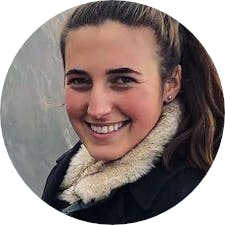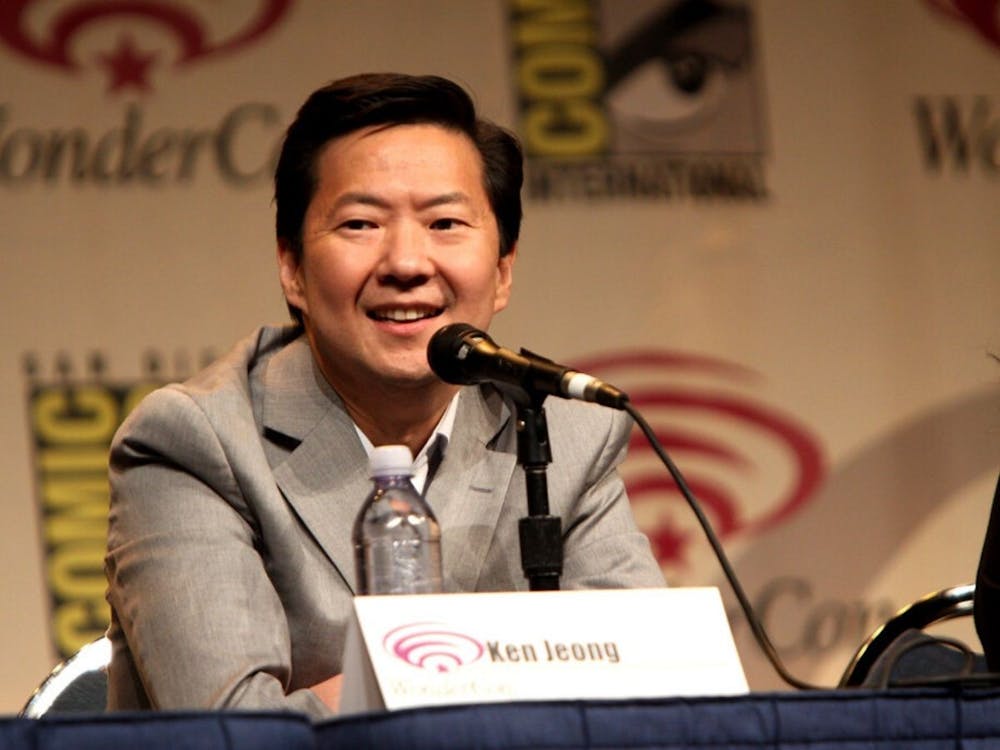Ken Jeong, Trinity ‘90, is an actor and comedian best known for roles in the TV show “Community” and “The Hangover” film series. He was announced in March as this year’s commencement speaker. The ceremony has since been postponed, but Jeong will be participating in the virtual Marking the Moment ceremony.
The Chronicle spoke with Jeong about basketball, his time at Duke and his advice for graduating seniors. This interview has been lightly edited for length and clarity.
The Chronicle: To begin on a fun subject, I know you were a huge basketball fan at Duke. Do you come back to campus for games or watch them on television? Do you miss it?
Ken Jeong: Yes, yes to all those things. I came back a couple of years ago to a Duke-Carolina game at Cameron Indoor Stadium, and that was my first time back at Cameron in decades. It was an emotional reunion because I was a Cameron Crazie growing up. I camped out before all the tenting was organized.
My first Duke-Carolina game was in 1987, and we weren't organized back then. We were skipping classes, we had people in tents, and we did shift work and were really disorganized. I'm sure my grades suffered because of it, but I wouldn't trade it for the world because I still remember my first Duke-Carolina game, and it was magic, it really was. To experience a Duke game at Cameron, as a basketball fan, is still the best.
In the last few years, I've had the privilege of being courtside at Los Angeles Lakers, New York Knicks, and even Miami Heat games. They've been amazing experiences, but nothing beats being at Cameron. When the students saw me enter Cameron, they were cheering so loudly. I mean, it was so loud. Louder than any response I've ever gotten at an NBA game.
I started getting choked up because I was one of them, I really was. I was with a buddy of mine who was my roommate at Duke, and to experience that now with someone who I would go to games with as a kid, it really ranks up there as one of my favorite memories of all time. It was really amazing to come back, and it was such a full-circle moment for me; it was very, very special.
Afterwards, I walked around the quad on West Campus. I remember seeing this one kid running to Perkins Library. Running, just running. I just looked at my roommate like “that was me!” because that was me as a kid: just running, stressed out, hoping I would get into medical school.
TC: At Duke, you followed a pre-med curriculum but had briefly considered the acting program. Can you tell me a bit more about your time at Duke on the academic side?
KJ: I took an introductory acting course my sophomore year. I had never done theater, never done any acting until my sophomore year at Duke, but once I took my first acting class, I just got bitten by the acting bug, and it hasn't been extinguished since.
I actually auditioned to get into Duke Drama at the end of my sophomore year and I got in, but I declined it because I didn't think I could keep up with my pre-med studies and also the Duke Drama curriculum. Both are very intense, and it was really heartbreaking because my organic chemistry grade went from an A to a C- in an instant. The Duke Drama people were so supportive. They said “we believe in your talent; we also believe that you're smart enough to handle both curriculums,”and I was like “no, I'm not.”
I’m a hard-working guy, but I'm not a genius, and I have to work hard for what I've gotten. It was the most difficult decision to decline drama and repair my pre-med grades so I could get into medical school.
It was really tough, but it was because of that I discovered my love of acting, my love of comedy and my love of comedic acting. That's where I first discovered my own comedic acting potential. I did not go to Duke with the intent of going into acting or comedy. Not at all. So, going to Duke was incredibly special, and I don't think I would have the life that I have right now, or the value system that I have right now, if I didn't go to Duke.
TC: Before you got to Duke and took all these pre-med courses, you grew up and went to high school in Greensboro, NC. I heard that you were on the quiz bowl team and the go-to math guy. Duke math is notoriously difficult, so how did you fare when you got to college?
KJ: I remember junior year, we were city champions and I was the go-to math guy. I skipped a grade as a kid, took calculus when I was 15, and placed out and took the AP exam, so there's a natural affinity I had to excelling at math in high school.
But Duke math is so hard. I stopped taking math at the end of my freshman year, it was so hard. Duke math blew my mind. I think I maxed out on my potential for math in my freshman year.
But I was so grateful for that experience because two of my roommates were engineers, and they had to take math. They had to take differential equations and math beyond my scope.
Especially that freshman year, just to rub elbows with the most brilliant minds was so inspiring. I've been blessed to meet a lot of people that have provided so many different gifts to the world, and that goes back to my Duke experiences where I've met the most brilliant minds, people who've moved on to do amazing things.
TC: You went to the University of North Carolina at Chapel Hill for medical school. Did you see yourself doing that as an undergraduate?
KJ: No, not at all. I recently met Coach Cutcliffe when I was on campus in 2018. I spent a large part of my day talking to him because we had become fast friends on social media. He had the best joke; he said “Ken went to UNC medical school, which is why he became a comedian.”
Get The Chronicle straight to your inbox
Sign up for our weekly newsletter. Cancel at any time.
As a North Carolina resident, the in-state tuition was so inexpensive. It was definitely a benefit to me. I had a good time at UNC, except for basketball. I would park at the Dean E. Smith Center in a Duke blue mustang, and I would wear Duke paraphernalia everywhere.
I was so brazen that I would just walk around and dare people to call me out. I remember studying with a friend of mine, and I started trash-talking UNC so much that I had to leave his home because things were about to get ugly. I was so obnoxious.
TC: Are you still that obnoxious?
KJ: It’s so funny now; it runs deep. I remember I was on location shooting a movie, and I was at the hotel restaurant bar watching the Duke vs. Butler final in 2010 when Duke won the championship. I was known around town as a very polite guy, but the Duke just came out of me. I was so fired up, intense, yelling at the screen, talking trash at the bar.
TC: I know Duke students, especially seniors, are sad to be missing your commencement speech this weekend. Is there anything you’d like to tell our graduating seniors?
KJ: With regard to today’s pandemic, I keep preaching to everybody, “Don’t deny the science.” Let science dictate policy. Let science dictate where we go as a society right now.
And to the graduating class of Duke University, don’t deny your potential.
I am living proof of what your potential can be. If you have an idea, follow through with it. You never know where it will take you. Any idea is a good idea. At Duke, you learn to explore your potential at the highest level, at the highest rate of work ethic, in the most wonderfully intense learning environments.
If I can give anybody advice, especially at Duke University which is near and dear to my heart and what shaped me to become the person I am today, I am living proof of not denying your potential. Never sell yourself short. You never know what you can achieve. I didn’t go to Duke thinking I would go into comedy. I didn’t even know what my passion was in life.
I just went with the flow, and I had an open mind. That’s what I followed then, that’s how I live my life now. I have 12-year-old twin daughters and that’s how I tell them to live their lives.
Even in the area of medicine and public health, people are looking for outside-the-box ideas in order to handle this pandemic. People are looking for creative solutions to find fast-track treatments for COVID-19 vaccines and effective antivirals. As Duke graduates, we can all offer something to that equation.
I feel that no matter what you choose in your life, never deny your potential. That’s while you’re at Duke, and especially after you leave Duke. If you go with that feeling, which I was able to cultivate at an early age and have never let go of, everybody who graduates Duke University can go way farther than I ever have.
I believe true success lies in your integrated self. Even when I was a practicing physician, I learned how to make my medicine my art. I learned the vocabulary and algorithms of clinical practice as an internal medicine physician. What I also learned through my comedy background is that medicine is improvisation. You’re listening to the patient, you’re listening to the symptoms, you’re reading the results of all the tests, you’re synthesizing information and you’re improvising off of that information.
Behind the scenes, people say, ‘You have an amazing work ethic.’ No I don’t. I have a Duke work ethic. I have a work ethic that everybody at Duke has. I don’t work any harder, I don’t work any less. In order to survive at Duke, you have no choice but to work hard. In my head, I have a work ethic that I cultivated at Duke. There’s always a part of Duke University in me, no matter where I go.
This is what I want the graduating class to know and embrace. No one has the opportunity right now to embrace the uncertainty more than this graduating class. In my own world, I had an uncertain future and I found a way to embrace my potential, not knowing where it would go, not knowing where the endpoint is. I still don’t know where my endpoint is. If I am 50 years old and still excited as to where my endpoint will be, I challenge each Duke graduate to have that same excitement.
That is the true value of a Duke degree. It truly is.

Maria Morrison was a digital strategy director for The Chronicle's 117th volume. She was previously managing editor for Volume 116.

